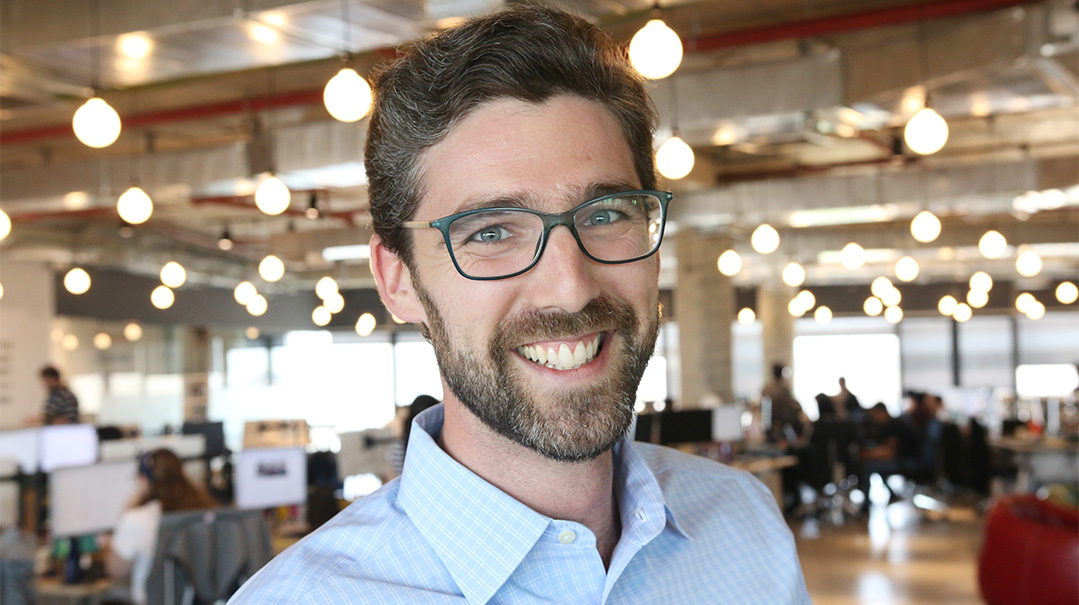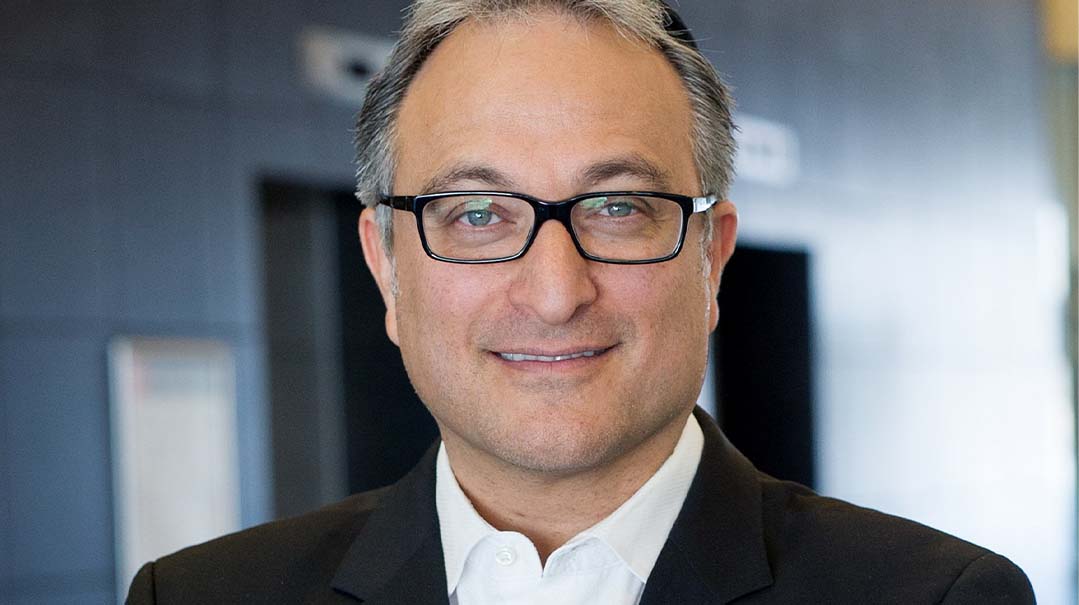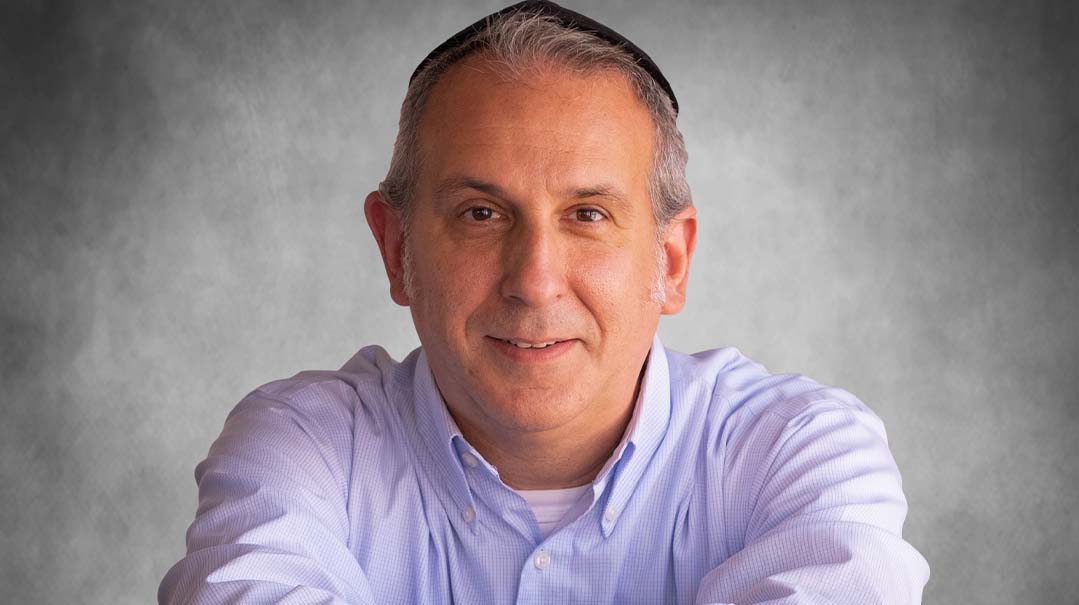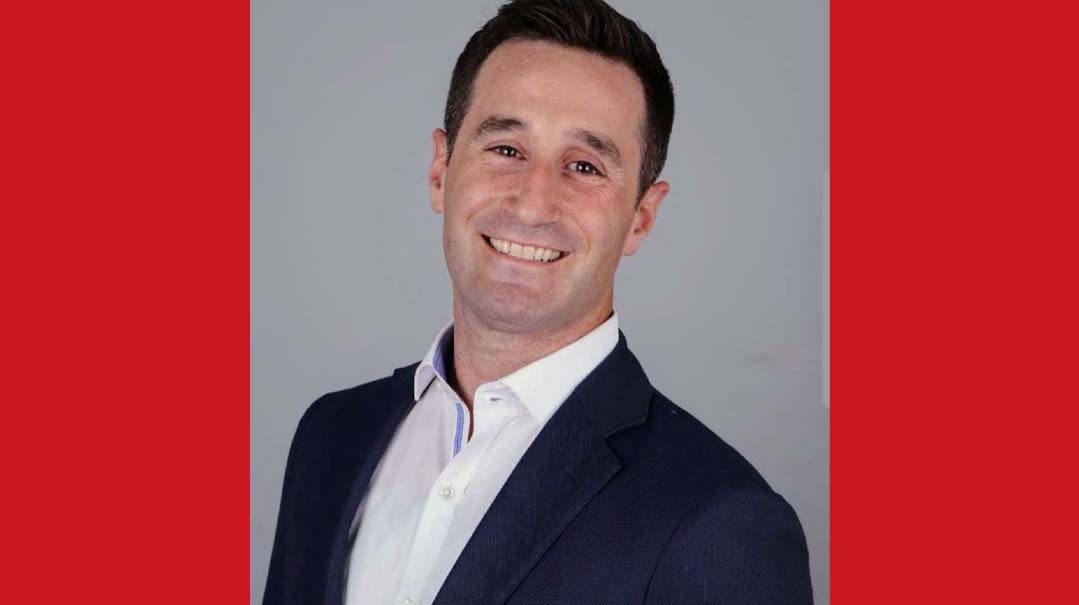Work/Life Solutions with Nachum Kligman


Who
Nachum Kligman, serial entrepreneur, author, podcaster, start-up business coach, and mentor to so many aspiring frum entrepreneurs (including me).
What
Nachum is currently the co-founder and CEO of Book Like a Boss, a platform used by 20,000 freelancers (in over 100 countries) to schedule appointments and generate sales. Previously, among other ventures, he was the founder of Mianzi Fashion, an apparel line for individuals with special needs, and Viewbix, a video analytics start-up that was recently acquired by Virtual Crypto. In addition, Nachum authored The Frum Entrepreneur: Turn Your Dreams into Reality (Mosaica Press, 2016), and has interviewed over 50 successful frum entrepreneurs on his “Frum Entrepreneur” podcast.
Where
Nachum was born and raised in Passaic, New Jersey, and currently lives in Ramat Beit Shemesh with his wife and eight children.
Why
For many years, I’ve been impressed by the way Nachum balances his high-level business endeavors with a serious learning schedule, quality family time, and chesed for the community. Also, there are some unique things about his life that you should know: He owned a restaurant in Meah Shearim called Gamzoos; he’s the inventor of “Cholent Chalavi,” which includes potatoes, beans, barley, fried onions, and mozzarella; he launched two successful online crowdfunding campaigns; he was on the very first Nefesh B’Nefesh flight to Israel shortly after 9/11 (he moved partially because of it); and his first son, born 9/11/2002, was the first Nefesh B’Nefesh baby born in Jerusalem. Most importantly, though, I’m sharing his story with you because he’s truly the quintessential frum entrepreneur.
3 of 9 What do you do to relax, recharge, or simply have fun? How do you make time for that, and how often?
A few months ago, I joined a “Kinyan Mesechta” chaburah, which has been truly incredible. It’s an hour and 15 minutes every morning, with the first few minutes devoted to chazarah on the learning we did the day before. Then 30 minutes on a new piece of the Gemara and then 30 minutes chazarah with a chavrusa, plus another 10 minutes with group chazarah. Then you do chazarah again with your chavrusa at night for another 10 to 15 minutes. It’s a very popular program in the US, and now it’s spreading throughout Israel as well. This program gives me the charge I need to focus on the rest of my day.
Of course, Shabbos is what I look forward to most. It’s the one day I can really disconnect from my business and focus on my family, on learning and davening. In terms of having fun, I really love what I do. I love my business, my partners, and entrepreneurship in general, so even though there are always ups and downs, I truly enjoy the thrill of the game.
4 of 9 What would you say was your most resounding failure? What did you take away from that experience?
First we need to understand that our powerlessness is not only about success, but about failure as well. Hashem expects us only to put in our best effort, while both success and failure are 100 percent up to Him. That’s why, just like when you succeed, you should not pat yourself on the back too much, so too, when you fail, you should not get too down on yourself. Failures are a way to learn from your mistakes and do things better the next time around. With that intro I can discuss my biggest failure.
A few years ago, I founded an apparel company for special-needs children. It was a passion project for me, since I have a son who has cerebral palsy. I remember when I came up with the idea, I said to myself, “How hard can it be to create a shirt? Everyone wears shirts.” Apparently, it was a lot harder than I thought. Manufacturing in China turned out to be a nightmare — even though I went and visited the factory, they messed up my order and weren’t honest, but I was too small a customer for them to care. Also, I had taken on some unscrupulous novice investors. It was painful for me, mostly because I truly wanted to help special-needs children and my heart was really in it.
I did learn two important lessons, though. One: Stick with what you know. I’ve been in high tech since 2002, and I should not have gone into the apparel industry. Perhaps I should have passed on the idea to someone else who already had the experience. And two: You need to vet your investors as much as they vet you.
This failure, however, directly led me to the idea for Book Like a Boss, and the things I learned from the experience have had a real impact on the current success we’re seeing with our company.
7 of 9 If you were asked to deliver a TED Talk that would be watched by 50 million people, what topic would you choose to speak about? Why?
I would speak about the future of employment. The world is changing rapidly and what worked during the last century isn’t necessarily what will work for the next. The 9-5 is shifting. People no longer want to be tied down to a certain time frame. People want to work at the times and in the location where they can focus best, whether that’s at a café, at home, or at a hub like WeWork.
Loyalty to one company over your career has also, for the most part, ended. Today people care more about experiences than about how much “stuff” they own. Businesses in the future will be made up of clusters of individual bosses, each one an expert in the task at hand. This will cut down on wasted time and money bringing employees into a 9-5 job, and will allow the worker of the future to focus on quality of life, make his own decisions, work when and from where he wants to and do the kind of work that he finds most satisfying. The shift is happening, and I believe people need to prepare for what is yet to come.
This work future seems perfect for the Orthodox Jew who prioritizes service to Hashem and family above a job. It allows us to work for the real Boss and not for the human version we seem dependent on today.
8 of 9 Can you share a time when you had to navigate the tension between your deepest values and the business world?
Last summer, we were in deep acquisition discussions with a large company from Oregon in a deal worth eight figures. After two months of virtual discussions, it was time to meet the CEO and COO in Manhattan. Both of them were high-powered women and neither had ever met an Orthodox Jew before. I really didn’t know how they would take to me not shaking their hands, and while I’ve heard different heterim before, I’ve always been makpid. A few days before my flight Hashem gave me a great idea — to send them a cute outline about Orthodox Jews. Below is what I sent them:
5 Fun Facts about Orthodox Jews
- We keep kosher, which means we only eat food that is under rabbinic supervision. Kosher mostly deals with laws about eating meat and dairy together, as well as certain forbidden animals.
- We wear yarmulkes on our heads. This keeps us from being haughty and reminds us that there is always Someone above us.
- We do not touch women who are not our immediate family. This means that although we won’t be able to shake hands, we can still air fist bump :).
- We are Sabbath observers, so from Friday night to Saturday night we don’t do any type of work. That means we won’t be answering phones or e-mails, but we do work a full Sunday.
- Our calendar is filled with holidays. You have probably heard of Yom Kippur and Passover, where we can’t work, but you have also probably heard of the eight days of Hanukkah, when we do work... and light candles, eat donuts and latkes, and pretty much anything else fried in oil.
They were very appreciative of me sending this to them. It broke the tension and made what I thought could be a very awkward situation a non-issue. In the end, the acquisition didn’t go through, but we’ve already seen how that was truly for the best.
Here is another example: Many years ago, when I started a company in the video space, we had about a month left of funds in the bank. It was Erev Succos and I had to decide: Do we pay our employees on time or wait until we raise more funds? If we didn’t pay salaries, we’d have an additional month in which to fundraise, but we had employees who were depending on the paycheck to get through Yom Tov.
It was an easy decision for me, even though others on my executive team were against it. I paid the salaries on time. In addition, I made it clear to my team that there would be no fundraising efforts on Chol Hamoed. That meant with Yom Tov we would be losing about two out of the four weeks left before we were out of funds. But I held true to my emunah, that Hashem runs the world and the more you allow Hashem to run the world with your thoughts and actions, the more you will see the clear siyata D’Shmaya.
The first workday after Yom Tov we contacted a very wealthy angel, who on the phone agreed to invest $500k into the company. The next day we sent the two-page agreement and he signed it. The third day after Yom Tov the money was in the bank.
9 of 9 If you were advising a young man/woman hoping to launch a career as an entrepreneur, which “dos” and “don’ts” would you share?
Do remember that you always have the opportunity to make a kiddush Hashem. Stay true to yourself and remember that you not only represent yourself, but you represent Hashem and the Torah. For many years I used my English name “Richard” when working in the business world. I felt Nachum was too hard to pronounce and could cause meetings to start off in an awkward way. I asked Rav Mordechai Goldstein shlita what to do, and he said that brachah rests on our Hebrew names and that I should use Nachum. So yeah, not too many people pronounce my name correctly, and when I’m on a podcast or conducting a webinar for thousands of people I’m probably the first Nachum they ever met, but what I realized is that for every Nachum there is a “Reyansh” — a popular Indian name. It’s a global business world now and many times I meet people whose names I can’t pronounce myself.
Don’t get stuck in “over-hishtadlus.” Many people will tell you that you have to hustle and work 12-hour days in order to succeed in business. While you do have to work hard and put in your proper hishtadlus, the amount of effort is directly correlated to your level of emunah. I guarantee that you will be more successful with an hour of learning a day than if you use that hour to go after more customers. Understanding that our success is from Shamayim and keeping that in mind during our working hours, will allow us to make the right decisions and go to that shiur, join that minyan, and be home for our kids.
Do solve a pain point. It’s a lot easier to sell a “need” than a want. Wants are very easy to ignore and always have a lot of competition to serve the want. A real pain point — a specific problem your customers are experiencing — that you can solve better than anyone else, saving them time and/or money, is a recipe for success.
Do get yourself a mentor. The biggest mistake you can make when starting a business is not learning from the mistakes of others. In every field and industry there are entrepreneurs who have gone through the process you are just starting, and you will find that 90% of them will be willing to give you free advice and feedback. All you have to do is ask.
Don’t quit your day job. Building any business takes time and patience. Tobias Lütke, CEO of Shopify, said, “It took about 10 years’ time for Shopify to be an overnight success.” Starting a business is very hard. Nothing goes as fast as you would like and everything costs twice as much as you would expect. Unless you have more than enough money in savings for a year without making any money, don’t quit the job that’s paying your bills until you’re sure the business can sustain you.
(Originally featured in Mishpacha, Issue 776)
As the COO of Partners in Torah, Moe is spearheading a digital transformation, strategic partnerships, and global expansion. Previously, he was the Founder & CEO at Winfluencers, the Head of BizDev for Hometalk, Strategy Consultant for Deloitte, and Regional Director for the Lauder Foundation. He holds an MBA and semichah, and published his first book, The Gift of Stuttering (Mosaica Press, 2016). He also teaches a Daf Yomi shiur, produces inspirational videos for Aish.com, and gives lectures to audiences worldwide. Moe lives in Ramat Beit Shemesh with his wife and children.
Oops! We could not locate your form.













